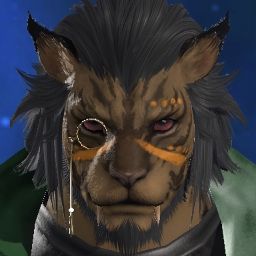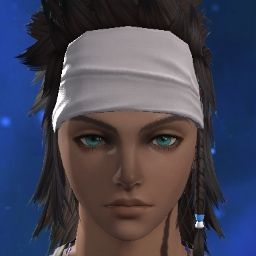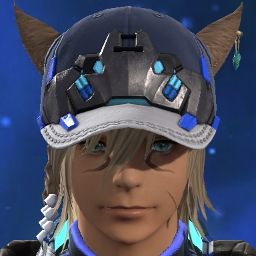So after finishing the cutscene where we get the Echo of Haldrath and the foundation of the four Ishgardian high houses, I'm still a little unconvinced on the truth of the origin story.
While I like the "dragons were the good guys" thing, and humanity not being 100% innocent in the war, there was something about the way Haldrath and the other knights acted after "killing" Nidhogg which I found ... odd?
In the dialogue, Haldrath doesn't seem the way you would expect a maniacal power-hungry prince to act, he acts more like killing Nidhogg was a case of necessity. And considering we've only heard second hand (even from Hraesvelgr and Nidhogg) about what actually happened between Thordan et al and Ratatoskr; in addition to the fact that we still have Nidhogg to contend with going forward with 3.x, I do wonder whether something happened to Ratatoskr and she asked them to kill her and take her eyes or something?
Just that cutscene really didn't fit with the rest of the picture of "The Ishgardians are the bad guys" thing which had been built up around the rest of the storyline.
Anyone know if this is similar in other languages? I just would be very interested if the warping and distortion of the truth behind the origins of the dragonsong war went even further beyond what we already know.
-
07-03-2015 08:42 PM #1Player

- Join Date
- Dec 2013
- Location
- Ul'dah
- Posts
- 42
- Character
- Lux Felix
- World
- Balmung
- Main Class
- Astrologian Lv 60
The Origins of the Dragonsong War - doubts [HW spoilers]
(0)
-
07-03-2015 08:52 PM #2Player

- Join Date
- Mar 2015
- Location
- Ul'dah
- Posts
- 425
- Character
- Tuya Bayaqud
- World
- Balmung
- Main Class
- Bard Lv 52
Remember that it was most probably Thordan not Haldrath who ordered and leaded the treason, the rest merely followed since he was their king after all, and the scenes show they didnt enjoy killing one dragon much less killing Nidhog after engaging them for the murder of his brood sister. Thats probably the reason Nidhog was not slain despite losing both eyes, they felt they had enough blood on their hands to add even more
Not sure about the knights who bit the dust since we dont even see them they might be alongside the more loyal to Thordan's plan who knows?(1)
-
07-03-2015 08:52 PM #3
I don't see how Haldrath being as remorseful and grim as he was conflicted with absolutely anything. In addition to having time to realize they committed a brutal atrocity against an ally, there's the realization of the doom they've cosigned Ishgard and her people to. It's his father primarily that was power-hungry and he got killed pretty good, which is another factor; people close to you dying in battle can alter someone's mindset or priorities or make them look at things in new lights even if Haldrath was greedy at the start too. Basically, I think boiling him down to "maniacal power-hugry prince" is a gross oversimplification if you're looking at expectations of a character (who isn't an Ascian anyway).
My personal takeaway is that this was him looking at everything that had happened once the dust had settled and being both disgusted by it and himself (and possibly Thordan, too) but resigning himself to the fate they made.(2)
-
07-03-2015 10:05 PM #4Player

- Join Date
- Mar 2011
- Location
- Limsa Lominsa
- Posts
- 5,046
- Character
- Anony Moose
- World
- Excalibur
- Main Class
- Arcanist Lv 100
For a moment during that scene, I expected that there would be some second revelation that Nidhogg was involved in Ratatoskr's death. He seems characteristically malicious, especially in the scene where he pressures Hraesvelgr for half of his power. It could still be revealed that Nidhogg was inherently evil and was actually involved; perhaps he is the one who tempted Thordan in the first place. Right now, however, we've only been told that Nidhogg was skeptical of mankind to begin with and that his rage at their betrayal consumed him entirely. There's some reason to doubt it, but nothing to contradict it. Who's to say it wasn't the Ascians who put Thordan on that train of thought?
At least we know that it probably wasn't the Allagans >.>
The other languages are similar, so what is required is the correct interpretation.
Haldrath is nothing like the image of his father that we've been given. Thordan wanted power bad enough to end a two-century peace and bear the breaking of a pact. Thordan and some knights were slain in Nidhogg's resulting fury, but Haldrath and the remaining knights were able to overcome him with their newfound power.
Haldrath is looking back, ashamed, wondering: If Thordan understood the cost of Ishgard's power and prosperity, would he still have done it?
Sylvetrel de Dzemael doesn't share his wistfulness; he just sees that Nidhogg has been killed, Hraesvelgr won't challenge them, any other great wyrms have fled Eorzea, and they possess not only Ratatoskr's power in their blood, but both of Nidhogg's eyes. He wants to see Ishgard rise to power with Haldrath at its head as he enforces, finally, peace. To him, they've traded honor and their treaty with the dragons for strength, independence, and prosperity, and it's time to move on.
Haldrath, however, can't bring himself to do it. Unlike the others, he thinks the sacrifices were too much and that their honor was traded in vain. As his penance for partaking of Ratatoskr's eyes, he forsakes the throne and vows to use the power he has stolen to protect his people from the rage they have stoked in the dragons (as Nidhogg's followers remain).
Flavien de Fortemps joins Sylvetrel, claiming that Haldrath doesn't have the right to abdicate because their entire culture will collapse as a flock without a shepherd. Haldrath retorts that an intact structure of nobility with his trusted knights at its head should be enough, and, that if it's not, they should choose a new king from amongst it while he atones for his father's sins until his death.
Dzemael and Fortemps can't accept that. They say that they've sacrificed too much and fought too desperately to lose Ishgard's culture, and that the best course of action is to (perhaps "as their king (sort of) decreed") divide the leadership amongst the remaining knights as the foundation of the new nobility.
Haillenarte, and Durendaire concur, but (if I remember correctly) four knights are dead, and the remaining four claim that (because Thordan is dead and Haldrath refuses the throne) the Knights Twelve have no purpose and are thus disbanded. The "Brawny Knight," for instance, says that without a duty as a knight, he will accept a duty as a son and follow in his father's footsteps of owning a tavern / inn.
With only the four still there, Sylvetrel says that whoever is king has become irrelevant and that they can elect one who is worthy when one who is worthy arises. All that matters, he claims, is that their culture remain intact, and that to do that will require them to keep these events secret and forge a new history "for the good of Isghard."
Make more sense?(5)Last edited by Anonymoose; 07-03-2015 at 10:37 PM.
-
07-03-2015 11:01 PM #5Player

- Join Date
- Dec 2013
- Location
- Ul'dah
- Posts
- 42
- Character
- Lux Felix
- World
- Balmung
- Main Class
- Astrologian Lv 60
Yeah I thought the same to be honest, which is why I made the thread. Of course as the narrative is pointing us at the moment, it was purely Thordan's greed which caused the war to begin as you say later; I just think it would be interesting to have a "double" revalation whereby it is not as simple as the men (3.0) or the dragons (3.1-3.??) initially believed it to be. Particularly considering that the of all the times we have had Echos of important events in Eorzea's history, the one that was crucial (Ratatoskr's death) was delivered to us by Hraesvelgr as a monologue, not as an Echo. Something something show don't tell something something general narrative theory. I'd have been willing to accept the truth as told to us before Nidhogg returned but as of now I doubt this will be the last we hear of the origins of the war (they went to the trouble of giving a voice to Haldrath after all).
As for potential Allagan involvement ... well ... there's a lot of Allagan tech in the Aery. it's slightly surruptitiously hidden but it's definitely there and it is never explained. This is probably a topic for another thread though.(0)
-
07-03-2015 11:10 PM #6Player

- Join Date
- Mar 2011
- Location
- Limsa Lominsa
- Posts
- 5,046
- Character
- Anony Moose
- World
- Excalibur
- Main Class
- Arcanist Lv 100
I had assumed it was Dalamud wreckage, though if Nidhogg had once been bound that might go a long way towards explaining why he distrusted humans so much, lol. Let's just dawn the Darksteekfoil Hat here and see if anything comes of it... In Azys Lla, the node casually mentions that sections were damage when a dragon broke free 2,369 years ago, well after the station went dark 5,014 years ago. I thought it was Tiamat, but she's been cooped up brooding since then, it sounds like. If people want to speculate Allagan involvement it, though, perhaps it was Nidhogg
 (1)"I shall refrain from making any further wild claims until such time as I have evidence."
(1)"I shall refrain from making any further wild claims until such time as I have evidence."
– Y'shtola
-
07-03-2015 11:42 PM #7Player

- Join Date
- Sep 2013
- Location
- The Hermit's Hovel
- Posts
- 3,709
- Character
- Trpimir Ratyasch
- World
- Lamia
- Main Class
- Gunbreaker Lv 100
While the scene doesn't paint the Ishgardians as cackling villains, it does confirm the truth (it's an Echo flashback, so it actually happened).
My wager is that the remaining Knights were already regretting Thordan's decision (and their decision to go along with him). Haldrath condemns himself to the fate of the Azure Dragoon ("a hells-bound hunter of dragons"), two of the knights state they've had enough of betrayal and bloodshed and are going to go live normal lives, and the four that remain seem to take up stewardship of the throne only out of duty.
... the villains aren't usually cackling, finger-tenting madmen. They're normal people just doing what they think is right.(3)Trpimir Ratyasch's Way Status (7.4 - End)
[ ]LOST [X]NOT LOST
"There is no hope in stubbornly clinging to the past. It is our duty to face the future and march onward, not retreat inward." -Sovetsky Soyuz, Azur Lane: Snowrealm Peregrination
-
07-03-2015 11:55 PM #8Player

- Join Date
- Oct 2014
- Location
- Limsa
- Posts
- 1,162
- Character
- Dererk Titan
- World
- Ultros
- Main Class
- Dark Knight Lv 90
I think it may go deeper maybe its more like Nidhogg could have set the while thing up he never seamed accepting of us living along side them.
(2)
-
07-04-2015 01:01 AM #9Player

- Join Date
- Oct 2013
- Location
- Gridania
- Posts
- 4,644
- Character
- Tonrak Totorak
- World
- Gilgamesh
- Main Class
- Red Mage Lv 90
Prior to St. Shiva and Hraesvalgr love affair, the Ishagrdian and the Dravanians were warring with each other. I'm sure quite a few of his brood were slaughtered and then there's still the memories of what mortals did to Meracydia.
So Nidhoggs bitterness is understandable. According to lore, Ratatoskr would travel up and do Yggdrasil to trade gossip/stories to Nidhogg. Perhaps that's whats she's been doing prior to death? Going to Ishgard to check up on things then going to Nidhogg to tell him whats been going on and maybe even tried to convince him about humans finally being peaceful. Sadly, when she never returned that's when Nidhogg looked for her(0)
-
07-04-2015 02:12 AM #10
And as long as they understand that our right is objectively better, there's no need for conflict, right? XD (Grats on DRK 50)
Even just considering how most of 2.X's level-cap dungeons played out, I definitely feel like we'll have a reason to go back to the Aery (The Aery (Hard)?). The description on the Lesser Panda minion also seems to suggest he was brought over by "a certain Imperial Legatus," but we haven't seen any imperials around there, yet.(0)


 Reply With Quote
Reply With Quote









